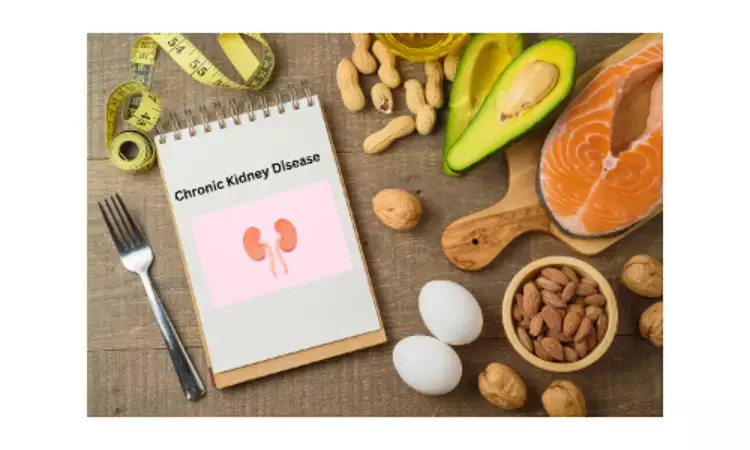- Home
- Medical news & Guidelines
- Anesthesiology
- Cardiology and CTVS
- Critical Care
- Dentistry
- Dermatology
- Diabetes and Endocrinology
- ENT
- Gastroenterology
- Medicine
- Nephrology
- Neurology
- Obstretics-Gynaecology
- Oncology
- Ophthalmology
- Orthopaedics
- Pediatrics-Neonatology
- Psychiatry
- Pulmonology
- Radiology
- Surgery
- Urology
- Laboratory Medicine
- Diet
- Nursing
- Paramedical
- Physiotherapy
- Health news
- Fact Check
- Bone Health Fact Check
- Brain Health Fact Check
- Cancer Related Fact Check
- Child Care Fact Check
- Dental and oral health fact check
- Diabetes and metabolic health fact check
- Diet and Nutrition Fact Check
- Eye and ENT Care Fact Check
- Fitness fact check
- Gut health fact check
- Heart health fact check
- Kidney health fact check
- Medical education fact check
- Men's health fact check
- Respiratory fact check
- Skin and hair care fact check
- Vaccine and Immunization fact check
- Women's health fact check
- AYUSH
- State News
- Andaman and Nicobar Islands
- Andhra Pradesh
- Arunachal Pradesh
- Assam
- Bihar
- Chandigarh
- Chattisgarh
- Dadra and Nagar Haveli
- Daman and Diu
- Delhi
- Goa
- Gujarat
- Haryana
- Himachal Pradesh
- Jammu & Kashmir
- Jharkhand
- Karnataka
- Kerala
- Ladakh
- Lakshadweep
- Madhya Pradesh
- Maharashtra
- Manipur
- Meghalaya
- Mizoram
- Nagaland
- Odisha
- Puducherry
- Punjab
- Rajasthan
- Sikkim
- Tamil Nadu
- Telangana
- Tripura
- Uttar Pradesh
- Uttrakhand
- West Bengal
- Medical Education
- Industry
Lower vegetable and fruit intake tied to greater risk of death irrespective of chronic kidney disease status: Study

Japan: A recent study has found that a lower intake of fruit and vegetable is associated with a higher risk of death regardless of CKD (chronic kidney disease) status. Baseline serum potassium levels stratified by CKD stages were similar across the groups (according to the frequency of vegetable and fruit intake).
The study of Japanese patients with and without CKD suggests that eating vegetables and fruits daily may not be associated with an increased serum potassium level. It may reduce rather than increase all-cause mortality in patients with CKD, including those on HD, as has been observed for non-CKD individuals.
A higher fruit and vegetable intake is associated with a lower mortality risk in the general population. In contrast, patients with advanced CKD, especially those on HD, are generally discouraged from consuming high amounts of vegetables and fruits, given the potential risk of hyperkalemia. Recent studies conducted in non-Asian countries suggest that a higher vegetable and fruit intake may be associated with lower mortality among adults with CKD, including those patients with HD and those without.
“We need to examine the association between vegetable and fruit intake and the risk of death in Japanese patients with CKD,” said Dr. Wakasugi, the study's corresponding author. “The vegetable and fruit intake vary markedly across countries. Diets consumed by Asian populations are estimated to be higher in vegetables and fruits than those consumed by other populations."
Using data from a registry of the only major hospital on Sado Island, Japan, the study examined the association between the frequency of vegetable and fruit intake and all-cause mortality in non-CKD and CKD populations to determine if this association is modified by CKD. The frequency of vegetable and fruit intake was determined by a self-reported questionnaire using an ordinal scale, “never or rarely,” “sometimes,” and “every day.”
Of the 2,006 patients who completed the self-reported questionnaire, 45% (n = 902) were patients with non-dialysis-dependent CKD, and 7% (n = 131) were patients on HD. The frequency of vegetable and fruit intake decreased with the worsening CKD stage. The baseline serum potassium level stratified by CKD stages was similar across all three groups.
During a median follow-up of 5.7 years, 561 deaths were observed. Compared with participants who ate vegetables and fruits every day, those who ate these sometimes and those who never or rarely consumed vegetables and fruits had a 25% and 60% higher risks of dying from any cause, respectively. When stratified by CKD status, a similar, albeit non-significant, dose-dependent relationship was observed between the frequency of vegetable and fruit intake and all-cause mortality irrespective of CKD status, suggesting no CKD effect modification.
“Our results suggest that the associations reported in previous studies from non-Asian countries are also observed in Asian populations,” said Dr. Wakasugi. “Our findings support that, although food culture differs by country, the survival benefit of a high vegetable and fruit intake may be universal.”
Reference:
Minako Wakasugi, Akio Yokoseki, Masakazu Wada, Takeshi Momotsu, Kenji Sato, Hiroyuki Kawashima, Kazutoshi Nakamura, Osamu Onodera, Ichiei Narita, DOI: https://doi.org/10.1053/j.jrn.2023.01.011
Dr Kartikeya Kohli is an Internal Medicine Consultant at Sitaram Bhartia Hospital in Delhi with super speciality training in Nephrology. He has worked with various eminent hospitals like Indraprastha Apollo Hospital, Sir Gangaram Hospital. He holds an MBBS from Kasturba Medical College Manipal, DNB Internal Medicine, Post Graduate Diploma in Clinical Research and Business Development, Fellow DNB Nephrology, MRCP and ECFMG Certification. He has been closely associated with India Medical Association South Delhi Branch and Delhi Medical Association and has been organising continuing medical education programs on their behalf from time to time. Further he has been contributing medical articles for their newsletters as well. He is also associated with electronic media and TV for conduction and presentation of health programs. He has been associated with Medical Dialogues for last 3 years and contributing articles on regular basis.
Dr Kamal Kant Kohli-MBBS, DTCD- a chest specialist with more than 30 years of practice and a flair for writing clinical articles, Dr Kamal Kant Kohli joined Medical Dialogues as a Chief Editor of Medical News. Besides writing articles, as an editor, he proofreads and verifies all the medical content published on Medical Dialogues including those coming from journals, studies,medical conferences,guidelines etc. Email: drkohli@medicaldialogues.in. Contact no. 011-43720751


